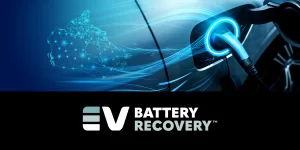London, United Kingdom — Nissan executive Nic Thomas claims that almost all of the EV batteries the OEM has ever made are “still in cars.”
“And we’ve been selling electric cars for 12 years,” Thomas stressed to Forbes.
“We haven’t got a great big stock of batteries that we can convert into something else,” said Thomas, who serves as the U.K. marketing director for Nissan. “It’s the complete opposite of what people feared when we first launched EVs—that the batteries would only last a short time.”
Nissan has only collected a “relatively small” number of Leaf batteries, according to Thomas. The stock has largely come from collision total losses or warranty issues, and some of the recovered batteries were recycled into solar panels to supply backup power to the Johan Cruijiff Arena in Amsterdam.
Other Leaf batteries will be dismantled and reused in consumer-level portable energy storage packs—that is, “when [Nissan has] got some batteries to go into them,” said Thomas.
“But by far the easiest thing to do is take the complete battery out of the vehicle, put it in a shipping container in a rack and plug that into a solar farm,” he added.
The International Energy Agency estimates that the world has enough global capacity to recycle 180,000 metric tons of used EV batteries annually—but recycling analysts believe that EVs bought in 2019 alone will eventually generate more than 500,000 metric tons of battery waste.
“I’ll be very old and very retired by the time we actually need to do a lot of these things,” joked Thomas.
Analysts estimate that about five percent of lithium-ion batteries sold are eventually recycled.


























